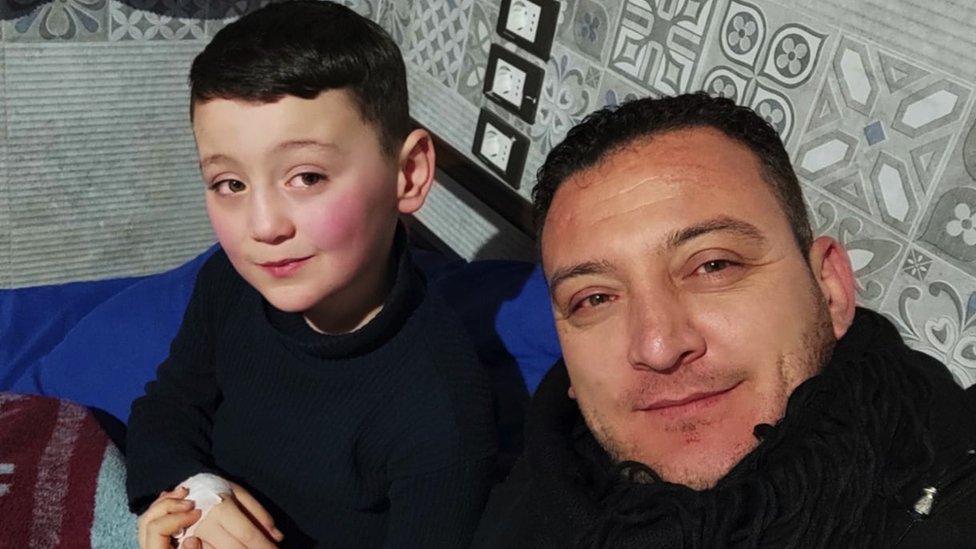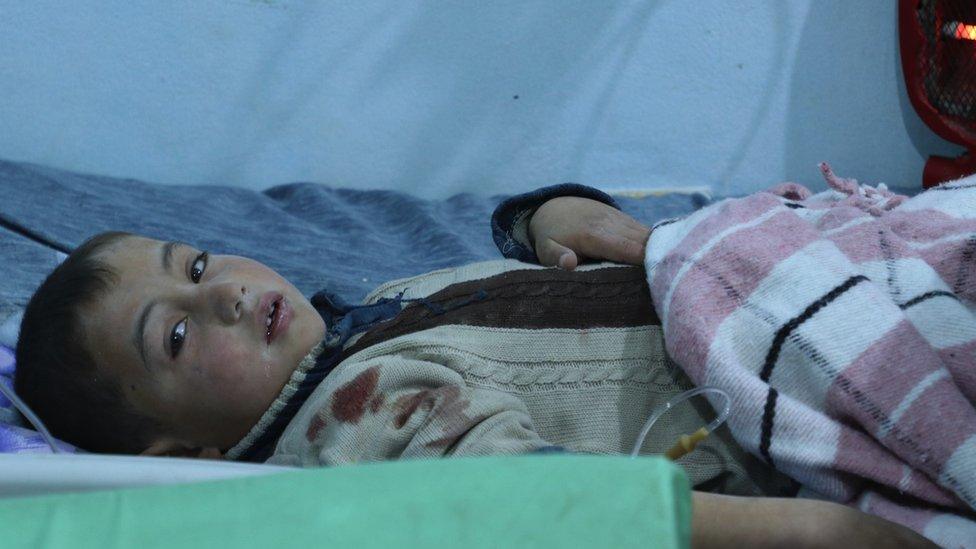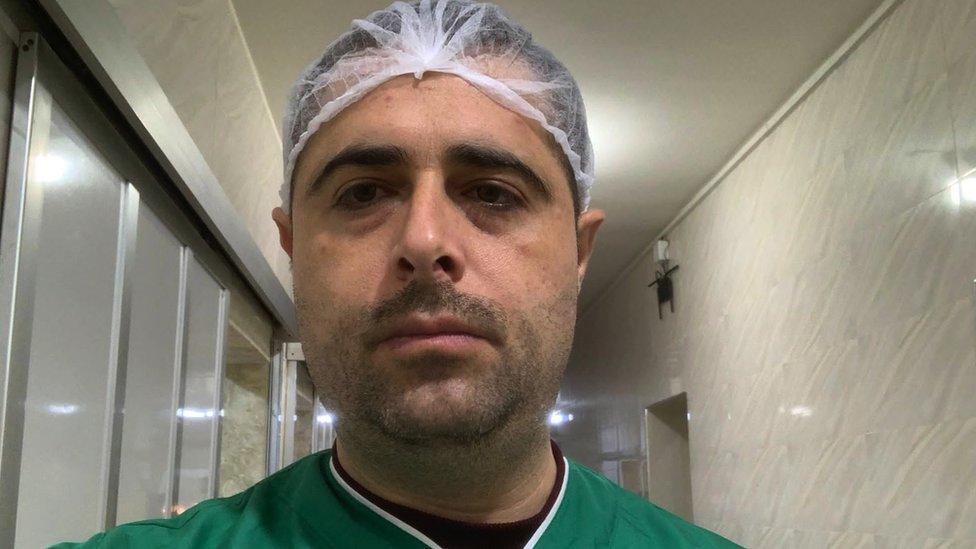Turkey and Syria earthquake: 'The hospital was collapsing with my son inside'
- Published

Ismael Alrij and his son, Mustafa, in hospital five minutes before the earthquake struck
Ismael Alrij had just left his six-year-old son, Mustafa, in the hospital when the ground started to violently shake. Watching the building start to fall apart, Ismael could only fear the worst.
"Then the earthquake got stronger," Ismael tells me in a series of voice messages over WhatsApp, the connection patchy. "The power went out and the entrance to the hospital, which was made from glass, started shattering.
"It was like a doomsday scenario," he says. "I started imagining how I would have to rescue my son from the rubble."
A minute later, Mustafa emerged, running towards him, screaming and crying. He had ripped out his own drip, and blood was oozing from his arm.
Ismael rushed to help not only his own son but others escaping the building amid panic and confusion in the dark. He sheltered nurses and a pregnant woman due to give birth in his car for 20 minutes before racing home to find out about his own family.
Ismael's wife and other child were safe, and the house was still standing.
The situation there in al-Dana, north-western Syria, was chaotic and desperate. Ismael had watched two residential buildings collapse but power and internet cuts meant rescue services could not be called. It was an hour, he says, before anybody could get there to look for survivors.

Doctors in north-western Syria say needs are immense after the earthquake
Al-Dana is an opposition-held town in Idlib province, near the border with Turkey. Civil defence units are the only emergency first responders in the absence of any government services, but the scale of the devastation made it impossible for them to reach everyone affected.
A few hours after the 7.8-magnitude earthquake struck at 04:18 local (01:18 GMT), Ismael, a journalist, went to look around.
"The damage is indescribable," he says. "The areas most affected are ones which were previously bombarded by Syrian government or Russian forces."
The Syrian uprising in 2011 descended into a bitter civil war in which the Syrian regime, backed by Russia, pounded rebel-held areas.
For the past three years there has been a shaky ceasefire in north-western Syria. The region is split into a patchwork of zones controlled either by Syrian opposition forces or the Damascus-based government.
Ismael saw dozens of residential buildings destroyed in the town of Atareb, north of the government-controlled city of Aleppo.
"There are many buildings and neighbourhoods which rescue teams can't reach because of a shortage of equipment," he says.
"We really need help from international organisations."
One such group which was already functioning is the Syrian American Medical Society (Sams), which supports hospitals across the opposition-held north-west.
Dr Osama Salloum, who was called to the Sams hospital in Atareb, says he "could not understand what was happening" in the first few moments of the quake.
"I felt death was close," he says. "I kept hearing buildings and rocks fall."
By the time he left the hospital there had been about 53 deaths there - a figure which he says rose to more than 120 by the time we spoke. "I could not count the number of injured," he adds.

Dr Osama Salloum: "I felt death was close by"
The earthquake also hit areas under government control in the north. Aya was on a visit to her family in the coastal city of Latakia when it struck.
The 26-year-old chef was asleep with her mother and three siblings when the power went out.
"I got out of bed but was not sure what woke me up," she tells me. "I didn't understand what was happening until I found the rest of my family also up."
Her family home is on a main road and has glass windows throughout.
"We couldn't move because of how strong the quake was," she says. "We remained rooted on the spot."
Aya's mother has Parkinson's disease. She was petrified and panicking.
"I was in shock and couldn't move," says Aya. "I kept looking at how the walls were shaking and moving back and forth. I can't describe to you how crazy the situation was."